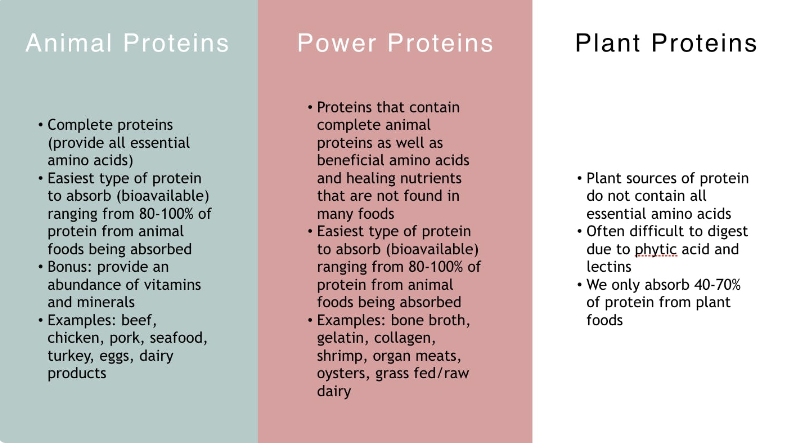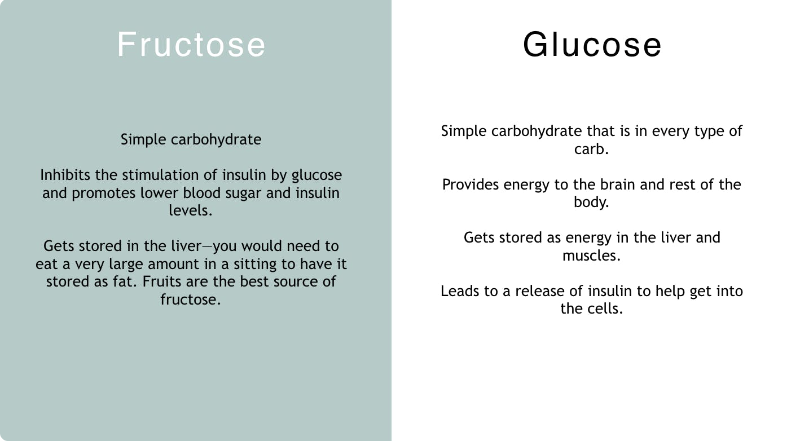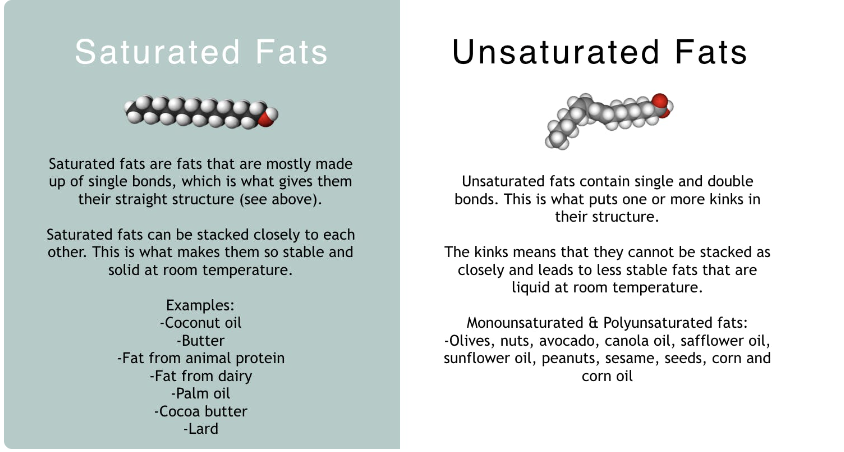I think we all know someone that has tracked their macros or maybe you’ve even done it yourself (I definitely have), but that’s not what I’m talking about in this newsletter. I want to breakdown the science behind macros and share the importance of balancing them for healthy hormones. To be clear, I don’t think you need to track your macros in order to have healthy hormones. It’s more about understanding them and raising your awareness so you can optimize your meals in an easy way.
What Are Macros?
Macronutrients AKA macros are nutrients that our bodies need in large amounts. The three main macros (protein, carbohydrates, and fats) contain essential nutrients that the body cannot make itself.
This means we have to get these macros from our food. This gives our bodies the nutrients it needs to thrive and have healthy hormones.
Protein
Proteins make up approximately 40% of the body’s weight and serve in:
Types of Protein

Carbohydrates
Provide glucose, the preferred energy source for the brain and body.
When carbohydrates are in the proper balance and accompanied by proteins and fats:
Fructose vs. Glucose
There’s quite a bit of debate around fructose, glucose, and sugar in general. I want to start by saying that fructose and fruit are NOT bad. There’s a lot of misunderstandings around fructose, but that’s because it gets compared to things like high fructose corn syrup even though there’s not nearly as much fructose in fruit. Defenitely not enough to do harm.
There are benefits to fructose and glucose, which is why it’s great to get a variety of types of carbohydrates in from fruit, squash, potatoes, plantains, sweet potatoes, yucca, etc.

Fat
Fatty acids are found in every cell in the body and are essential to human survival. They have a number of roles in the body, but here are the main ones:
Types of Fat

To learn how to build a nourishing nutrition foundation check out my podcast where I break down how to do this.
And don’t forget to sign up for my weekly feminine periodical newsletter so you don’t miss out on any more deep dives into all things health!
reminder: i’m currently taking on 1:1 clients. if you’d like to explore what it would be like to work together and if we are a good fit, fill out this form to get more details!
